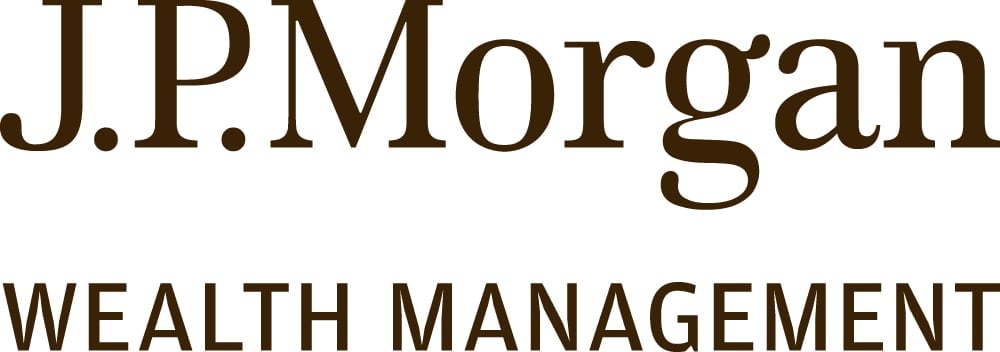Warren Buffett Stocks: What is Berkshire Hathaway Holding, Buying and Selling?

Many or all of the products featured here are from our partners who compensate us. This influences which products we write about and where and how the product appears on a page. However, this does not influence our evaluations. Our opinions are our own. Here is a list of our partners and here's how we make money.
The investing information provided on this page is for educational purposes only. NerdWallet, Inc. does not offer advisory or brokerage services, nor does it recommend or advise investors to buy or sell particular stocks, securities or other investments.
It’s no wonder that Warren Buffett’s stock picks are of interest to investors. Buffett, after all, is widely considered the most successful investor in modern history.
And since he primarily invests through his publicly traded holding company, Berkshire Hathaway (BRK.B), information about Buffett’s stock purchases, sales and holdings — or more accurately, Berkshire Hathaway’s purchases, sales and holdings — is available for free, online.
The only catch is that you have to dig through Securities and Exchange Commission (SEC) filings to find it. Below, we’ve assembled a one-stop guide to Warren Buffett stocks — the companies Berkshire Hathaway has recently invested in or disinvested in, and the companies it’s currently holding.
Jump to learn:
Who is Warren Buffett?
Warren Buffett is a professional investor and the chairman of Berkshire Hathaway, a conglomerate that invests in (and sometimes acquires) undervalued companies.
Born in 1930 in Omaha, Nebraska, Buffett worked as a stockbroker in his early years. One of his early-career mentors was Benjamin Graham, an investment manager who pioneered the bargain-hunting approach to stock selection known as value investing.
When Buffett started his own investment partnership in 1956, he had $174,000 to his name . Today, he’s worth more than $120 billion and is the seventh-richest person alive, largely thanks to the value investing strategies he learned from Graham .
NerdWallet rating 4.9 /5 | NerdWallet rating 5.0 /5 | NerdWallet rating 4.1 /5 |
Fees $0 per online equity trade | Fees $0 per trade | Fees $0 per trade |
Account minimum $0 | Account minimum $0 | Account minimum $0 |
Promotion None no promotion available at this time | Promotion None no promotion available at this time | Promotion Get up to $700 when you open and fund a J.P. Morgan Self-Directed Investing account with qualifying new money. |
What is Berkshire Hathaway?
Berkshire Hathaway is Buffett’s investment company. It’s the full owner of many recognizable companies, including GEICO and Fruit of the Loom. Berkshire is also a major shareholder in many other publicly-traded companies, such as Apple (AAPL).
Berkshire Hathaway formed in 1955 through the merger of two textile companies founded in the 19th century. Buffett began buying shares in the company in 1962, believing that it was undervalued, and took full control of the company in 1965. He subsequently used it as a holding company for his other investments — first in the insurance industry, then in many others.
Berkshire has been publicly-traded since its pre-Buffett era, so it’s required to file quarterly reports with the SEC, detailing its investment activities. As a result, Buffett’s investment decisions have been a matter of public record for most of his career. Its next quarterly report is due on May 6, 2024.
Berkshire Hathaway shares trade in two classes. The Class A shares have never undergone a stock split in their many decades of growth. As a result, they’re some of the highest-priced shares in the world, trading for just over $600,000 each as of Mar. 2024. That made them difficult to access for many investors before online brokers began offering fractional shares.
To mitigate this, the company also offers Class B shares that trade at a much more reasonable price — slightly more than $400 as of Mar. 2024.
In 1965, Buffett began writing an annual letter to Berkshire shareholders in which he explains the rationale behind Berkshire’s investment decisions. Those letters, along with Berkshire’s quarterly SEC filings, are the sources for much of the information in this article.
Which stocks is Warren Buffett buying?
In the most recent quarter, Berkshire Hathaway disclosed new investments in three different stocks, and they’re listed below in order of percent change in share count.
Company name & symbol | Percent change in share count over quarter | Value of investment at end of quarter |
|---|---|---|
Sirius XM (SIRI) | 316% | $220,129,000 |
Chevron Corp. (CVX) | 14% | $18,808,080,000 |
Occidental Petroleum (OXY) | 9% | $14,552,270,000 |
Source: 13F.info. Data is current as of Mar. 4, 2024 and for informational purposes only.
Which stocks is Warren Buffett selling?
Berkshire Hathaway sold all of its shares in four companies last quarter, and reduced its share count for another three stocks. They’re listed below in order of percentage sold.
Company name & symbol | Percent change in share count over quarter | Value of investment at end of quarter |
|---|---|---|
D.R. Horton (DHI) | -100% | $0 |
Markel Corp. (MKL) | -100% | $0 |
StoneCo Ltd. (STNE) | -100% | $0 |
Globe Life (GL) | -100% | $0 |
HP Inc. (HPQ) | -78% | $687,638,000 |
Paramount Global (PARA) | -32% | $936,539,000 |
-1% | $174,347,466,000 |
Source: 13F.info. Data is current as of Mar. 4, 2024 and for informational purposes only.
What are Berkshire Hathaway’s holdings?
After those purchases and sales, Berkshire Hathaway has a total of 41 stocks in its portfolio. They’re listed below in order of the dollar value of Berkshire’s holdings.
Company name & symbol | Percent change in share count last quarter | Value of investment at end of last quarter |
|---|---|---|
-1% | $174,347,466,000 | |
Bank of America (BAC) | 0% | $34,776,127,000 |
American Express (AXP) | 0% | $28,402,748,000 |
Coca-Cola Co. (KO) | 0% | $23,572,000,000 |
Chevron Corp. (CVX) | 14% | $18,808,080,000 |
Occidental Petroleum (OXY) | 9% | $14,552,270,000 |
Kraft Heinz (KHC) | 0% | $12,041,975,000 |
Moody's Corp. (MCO) | 0% | $9,635,028,000 |
Davita Inc. (DVA) | 0% | $3,781,371,000 |
Citigroup Inc. (C) | 0% | $2,841,792,000 |
VeriSign, Inc. (VRSN) | 0% | $2,639,503,000 |
Kroger Co. (KR) | 0% | $2,285,500,000 |
Visa Inc. (V) | 0% | $2,160,243,000 |
Mastercard Inc. (MA) | 0% | $1,700,345,000 |
Capital One (COF) | 0% | $1,635,201,000 |
0% | $1,519,400,000 | |
Charter Communications (CHTR) | 0% | $1,488,232,000 |
Liberty SiriusXM Group — Series C (LSXMK) | 0% | $1,243,534,000 |
Snowflake Inc. (SNOW) | 0% | $1,218,949,000 |
Aon plc (AON) | 0% | $1,193,182,000 |
Ally Financial (ALLY) | 0% | $1,012,680,000 |
Paramount Global (PARA) | -32% | $936,539,000 |
Nu Holdings (NU) | 0% | $892,299,000 |
T-Mobile US (TMUS) | 0% | $840,449,000 |
HP Inc. (HPQ) | -78% | $687,638,000 |
Liberty SiriusXM Group — Series A (LSXMA) | 0% | $580,768,000 |
Floor & Decor Holdings (FND) | 0% | $533,256,000 |
Louisiana-Pacific Corp. (LPX) | 0% | $498,990,000 |
Liberty Formula One Group — Series C (FWONK) | 0% | $487,518,000 |
Liberty Live Group — Series C (LLYVK) | 0% | $416,247,000 |
Sirius XM (SIRI) | 316% | $220,129,000 |
Liberty Live Group — Series A (LLYVA) | 0% | $184,647,000 |
NVR Inc. (NVR) | 0% | $77,789,000 |
Diageo plc (DEO) | 0% | $33,174,000 |
Lennar Corp. (LEN) | 0% | $20,452,000 |
Liberty Latin America Group — Series A (LILA) | 0% | $19,231,000 |
Vanguard S&P 500 ETF (VOO) | 0% | $18,782,000 |
0% | $18,727,000 | |
Jeffries Financial Group (JEF) | 0% | $17,520,000 |
Liberty Latin America Group — Series C (LILAK) | 0% | $9,424,000 |
Atlanta Braves Holdings — Series C (BATRK) | 0% | $8,851,000 |
Source: 13F.info. Data is current as of Mar. 4, 2024 and for informational purposes only.
Should you trade like Warren Buffett?
That depends on what you mean by “trading like Warren Buffett.” There’s a big difference between learning from Buffett’s methods and literally copying his trades.
Learning to invest like Warren Buffett
Almost anyone can imitate Buffett’s methodology, which is rooted in value investing. Value investors look for undervalued stocks whose price-to-earnings (PE) ratio, or other valuation ratios, are lower than those of their peers (implying that these stocks are trading at a discount to their true value). They also tend to like high-dividend stocks.
» Confused? Check out our primer on stock research.
Buffett famously remarked in his 1989 letter to Berkshire Hathaway shareholders that “it's far better to buy a wonderful company at a fair price than a fair company at a wonderful price ."
History seems to vindicate Buffett’s bargain-hunting approach — especially during periods of high interest rates. A 2020 paper by economists at Dartmouth College and the University of Chicago compared value stock returns with benchmark stock market returns between 1963 and 2019.
The study authors stopped short of proving a causal relationship between interest rates and value stock returns. But they did find that value stocks had a significant advantage over the market as a whole during the first half of the study period, 1963 to 1991, when the federal funds rate was higher than its long-term average. The federal funds rate is also above-average now.

Buffett is also an advocate for long-term investments. As he wrote in his 1988 letter to shareholders: “When we own portions of outstanding businesses with outstanding managements, our favorite holding period is forever. We are just the opposite of those who hurry to sell and book profits when companies perform well but who tenaciously hang on to businesses that disappoint.”
Copying Warren Buffett’s trades
Buffett may be a good role model for investors, but that doesn’t mean it’s a good idea to replicate his exact investment decisions.
“Copy trading,” as this practice is known, can be risky. The best investments for you will depend on your circumstances and goals, and may not be the same as the best investments for a famous billionaire.
Researchers are skeptical about the efficacy of copy trading. A 2020 paper published in the Management Science journal found that “copy trading leads to excessive risk taking” among investors.
To summarize, it’s not a bad idea for investors to familiarize themselves with Buffett’s buy-and-hold value investing philosophy. But if you’re buying the exact same stocks as him, just because he did, you may be missing the point of his methods.
Neither the author nor editor owned shares in the aforementioned investments at the time of publication.
On a similar note...






